#hcgdietfood
Explore tagged Tumblr posts
Link
🥗 Are you looking for a diet that can help you lose weight quickly? The HCG diet may be the answer. This diet involves a low-calorie intake and the use of human chorionic gonadotropin (HCG) hormone to promote weight loss. 🍎 To make the most of this diet, it's important to choose the right foods. The HCG diet focuses on lean proteins, vegetables, and fruits. These foods are low in calories and high in nutrients, making them ideal for weight loss. 🍤 In this article, we'll explore the top HCG diet foods for rapid weight loss. From protein-packed chicken to fiber-rich spinach, we'll show you how to create delicious and satisfying meals that will help you shed pounds quickly and safely.1. Understanding the HCG Diet: A Brief OverviewThe HCG diet is a weight loss program that combines a low-calorie diet with the hormone HCG. HCG is a hormone produced during pregnancy. It is believed to help regulate metabolism and suppress hunger. The diet typically involves consuming 500-800 calories per day. It is important to note that the FDA has not approved HCG for weight loss. The diet may cause side effects such as fatigue, headaches, and dizziness. Consult with a healthcare professional before starting the diet. It is not recommended for individuals with certain medical conditions. Some studies suggest that the HCG diet may lead to short-term weight loss. However, the weight loss is likely due to the low-calorie diet rather than the hormone itself. Long-term weight loss success may be difficult to maintain. It is important to incorporate healthy habits into your lifestyle for sustained weight loss. Overall, the HCG diet is a controversial weight loss program that should be approached with caution. Consult with a healthcare professional and do your own research before deciding if it is right for you. Remember that sustainable weight loss requires a combination of healthy eating habits and regular exercise. 👍🏼 2. The Role of HCG Diet Foods in Rapid Weight LossHCG diet foods play a crucial role in rapid weight loss. These foods are low in calories and high in protein, which helps to keep you full for longer. Lean protein sources like chicken, fish, and lean beef are essential for the HCG diet. Vegetables like spinach, broccoli, and asparagus are also important for their low calorie and high nutrient content. Fruits like apples, strawberries, and grapefruit are great for their natural sweetness and fiber content. Processed foods, sugary drinks, and high-fat foods should be avoided on the HCG diet. These foods can slow down weight loss and cause cravings. Drinking plenty of water is also essential on the HCG diet. Water helps to flush out toxins and keep you hydrated. Following the HCG diet plan and incorporating these foods can lead to rapid weight loss and improved overall health. 🥗🏋️♀️💪3. Top Protein-Rich Foods for the HCG Diet PlanProtein is an essential nutrient for the HCG diet plan. Here are some top protein-rich foods: Chicken breast: A great source of lean protein, chicken breast is low in calories and high in nutrients. Egg whites: Packed with protein, egg whites are also low in calories and fat. Shrimp: A low-calorie seafood option that is high in protein and low in fat. Beef: Lean cuts of beef, such as sirloin or flank steak, are high in protein and low in fat. Cottage cheese: A dairy option that is high in protein and low in calories. Other protein-rich options include turkey breast, fish, tofu, and Greek yogurt. Remember to keep portion sizes in mind and choose lean options for optimal results. 🍗🍤🥩4. Incorporating Fiber-Rich Foods in Your HCG Diet for Optimal ResultsFiber-rich foods are essential for a healthy HCG diet. They help regulate digestion, control appetite, and improve overall health. Here are some tips to incorporate them into your diet: Choose vegetables like broccoli, spinach, and kale for their high fiber content. Include fruits like raspberries, blackberries, and pears for a sweet and fiber-rich snack. Swap out refined grains for whole grains like quinoa, brown rice, and oats. Add legumes like lentils, chickpeas, and black beans to salads and soups for a protein and fiber boost. Not only will these fiber-rich foods keep you feeling full and satisfied, but they also promote healthy gut bacteria and reduce the risk of chronic diseases. Make sure to drink plenty of water when increasing fiber intake to prevent constipation. Aim for at least 25-30 grams of fiber per day for optimal results. Remember, a balanced diet with a variety of nutrient-dense foods is key to a successful HCG diet. 🥦🍓🍚5. HCG Diet Foods to Avoid: A Comprehensive ListWhen following the HCG diet, it's crucial to avoid certain foods to achieve optimal results. Here's a comprehensive list of foods to steer clear of: Sugar: This includes all forms of sugar, including honey, maple syrup, and agave nectar. Processed foods: These are often high in sugar, salt, and unhealthy fats. Fried foods: These are high in unhealthy fats and can lead to weight gain. High-carb foods: These include bread, pasta, rice, and potatoes. Alcohol: This can slow down weight loss and interfere with hormone levels. It's also essential to avoid certain types of meat, including: Fatty meats: These include beef, pork, and lamb. Processed meats: These include sausages, hot dogs, and deli meats. Other foods to avoid on the HCG diet include: Dairy: This includes milk, cheese, and yogurt. Nuts: These are high in calories and can slow down weight loss. Fruit: Some fruits are high in sugar and carbs, so it's best to avoid them. Sweetened beverages: This includes soda, juice, and sports drinks. Artificial sweeteners: These can interfere with hormone levels and slow down weight loss. By avoiding these foods and sticking to the recommended HCG diet foods, you'll be on your way to achieving your weight loss goals. 🥦🍗🥑6. The Importance of Hydration in the HCG Diet: Best Fluid ChoicesProper hydration is crucial in the HCG diet. It helps flush out toxins and keeps you feeling full. Here are the best fluid choices: Water: The ultimate choice for hydration. Aim for at least 2 liters a day. Herbal tea: A great way to add flavor without adding calories. Broth: Low-calorie and high in nutrients. Choose low-sodium options. Coconut water: A natural electrolyte-rich drink that can help with hydration. Avoid sugary drinks, alcohol, and caffeine. They can dehydrate you and hinder weight loss. Stay hydrated and feel your best on the HCG diet! 💦🍵🍲🥥7. HCG Diet Meal Planning: Sample Menu Ideas for Effective Weight LossPlanning your meals is essential when following the HCG diet. Here are some sample menu ideas that can help you achieve your weight loss goals: Breakfast: 2 scrambled eggs with spinach and 1 grapefruit Lunch: Grilled chicken breast with mixed greens and cucumber Snack: Apple slices with almond butter Dinner: Grilled shrimp with asparagus and cherry tomatoes Snack: 1 cup of strawberries with whipped cream It's important to note that portion control is crucial in the HCG diet. Stick to the recommended serving sizes to ensure effective weight loss. Make sure to include a variety of protein, vegetables, and fruits in your meals to get all the necessary nutrients. Avoid processed foods and sugary drinks. Drinking plenty of water is also essential in the HCG diet. Aim for at least 8 glasses a day to stay hydrated and help flush out toxins. Don't be afraid to get creative with your meals. Experiment with different herbs and spices to add flavor without adding calories. 🌶️🍅🌿 Remember, the HCG diet is not a long-term solution for weight loss. Consult with a healthcare professional before starting any diet or exercise program. Good luck! 🍀 In conclusion, the HCG diet can be an effective way to lose weight quickly. By incorporating the right foods into your diet, you can ensure that you are getting the nutrients you need while still shedding those extra pounds. Remember to consult with a healthcare professional before starting any new diet. 🍎🥦🍗🥩🥚🍓🥑🥕🍌🍅🥗🥒🍉🍇🍊🍋🍐🍏🍍🥝🍈🍑🍒🍅🍆🌶️🍠🥔🌽🥬🥦🥕🥒🥑🍅🍆🍠🥔🌶️🌽🥬🥦🥕🥒🥑🍅🍆🍠🥔🌶️🌽🥬🥦🥕🥒🥑🍅🍆🍠🥔🌶️🌽🥬🥦🥕🥒🥑🍅🍆🍠🥔🌶️🌽🥬🥦🥕🥒🥑 Overall, the HCG diet can be a great way to jumpstart your weight loss journey. By focusing on whole, nutrient-dense foods and cutting out processed junk, you can see results in just a few short weeks. Remember to listen to your body and make adjustments as needed, and always prioritize your health above all else. 💪🏼💪🏼💪🏼 https://fastdiet.net/hcg-diet-foods-top-choices-for-rapid-weight-loss/?_unique_id=646832f423652
1 note
·
View note
Photo

The original, (and correct) Hcg Diet Food List. https://hcgdietinfo.com/hcg-diet-food-list/ #hcgdietfoods #medicalweightlossprogram #rapidweightlossprogram #hcgdietphase2 #hcgfoods #hcgfoodsnot #hcgdietfood #hcgdieteating #hcgdietphase2 #hcgp2 #hcgdietp2 #hcgdiet #hcgprotocol #hcgoriginal #originalhcg #originalhcgprotocol #hcgsupport #hcgdietsupport #simeonsfoodlist #drsimeonsdiet #hcgdietplans #hcgcommunity #hcgfamily #hcgfriends #hcgfriendly #hcginjections #hcgweightloss #hcgrecipes #hcgcooking #hcgdietinfo #skinnychannel https://www.instagram.com/p/CNpur7bDPQx/?igshid=8orzzdw9diq2
#hcgdietfoods#medicalweightlossprogram#rapidweightlossprogram#hcgdietphase2#hcgfoods#hcgfoodsnot#hcgdietfood#hcgdieteating#hcgp2#hcgdietp2#hcgdiet#hcgprotocol#hcgoriginal#originalhcg#originalhcgprotocol#hcgsupport#hcgdietsupport#simeonsfoodlist#drsimeonsdiet#hcgdietplans#hcgcommunity#hcgfamily#hcgfriends#hcgfriendly#hcginjections#hcgweightloss#hcgrecipes#hcgcooking#hcgdietinfo#skinnychannel
0 notes
Photo

How would losing a POUND a day of Fat change your life? Are you over 40 and have slowly been #gaining #weight over the past few years, and don't know how to stop the #weight #gain? I specialize in helping #men and #women #over #40 to release from one-half to a pound and a half a day of #body #fat with our exclusive advanced #fat #release program. If you have the will, we have the way. Results guaranteed. Click the link in my bio for more details. #hcgdiet #hcgdietfoods #hcgprotocol #hcgdietcoach #hcghelp #hcg
#gain#men#release#hcgprotocol#40#hcgdietcoach#hcghelp#gaining#weight#fat#hcg#hcgdiet#hcgdietfoods#over#body#women
0 notes
Link
#Eating&hCGDiet#eatingonthehcgdiet#foodsallowedonthehcgdiet#hcgdietfoodlist#hcgdietfoods#hcgdietmenu#hcgdietsafefoods#whattoeatonthehcgdiet
0 notes
Link
#hcgdiet#hcgdietallowedfoods#hcgdietapprovedfoods#hcgdietcoach#hcgdietcommunity#hcgdieteating#hcgdieteats#hcgdietfamily#hcgdietfoodlist#hcgdietfoodie#hcgdietfoods#Hcgdietfoodslist#hcgdietphase2foods#hcgfoodlist#hcgfoods#whatcanieatonthehcgdiet
0 notes
Link
#hcgdietcoach#hcgdietcoaching#hcgdietcooking#hcgdietcookingrules#hcgdietcookingtips#hcgdietfoodoptions#hcgdietfoods#hcgdietplan#hcgdietrecipes#hCGDietTips#howtocookhcgdiet
0 notes
Link
#hcgdiet#hcgdietallowedfoods#hcgdietapprovedfoods#hcgdietcoach#hcgdietcommunity#hcgdieteating#hcgdieteats#hcgdietfamily#hcgdietfoodlist#hcgdietfoodie#hcgdietfoods#Hcgdietfoodslist#hcgdietphase2foods#hcgfoodlist#hcgfoods#whatcanieatonthehcgdiet
0 notes
Link
#alcoholanddiet#alcoholandweightloss#alcoholweightloss#hcgandalcohol#hcgandbeer#hcgandwine#hcgdietallowedfoods#hcgdietandalcohol#hcgdietcoach#hcgdietcoaching#hcgdietfamily#hcgdietfoodlist#hcgdietfoods#hcgdietprotocol#hcgdietquestions#hcgdietsupport#hcgweightloss#hcgweightlossfoods#losingweightwithalcohol
0 notes
Link
#fastingtips#hcgdiet#hcgdietandfasting#hcgdietandintermittentfasting#hcgdietcoach#hcgdietcoaching#hcgdieteating#hcgdieteatingplan#hcgdietfoods#hcgdietinjections#hcgdietmaintenance#hcgdietp3#hcgdietphase2#hCGDietphase3#hcgdietplan#hcgdietprotocol#HCGDietProtocols#hcgdietshots#hcgdietstabilization#hcgdietweightloss#hcgweightlosscoach#intermittentfasting#intermittentfastingandhcgdiet#medicalweightloss#medicalweightlossprotocol
0 notes
Text
HCG Diet Phase 3 Foods List - Approved foods for P3 |HCG Diet Info
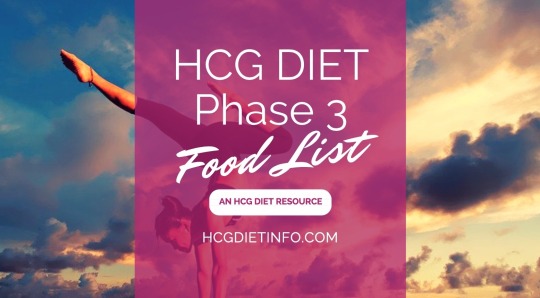
We've prepared the ultimate guide to the Hcg Diet Phase 3 Food List including the original protocol and all eating guidelines. This page is intended to make the transition from P2, easy for you. If you are unsure about how to transition from P2 to P3, it is easiest to stick to the original Hcg Food List for Phase 2, while increasing the portions and calories first. Be sure to add enough healthy fats to get your calories and metabolism up quickly. As you feel comfortable, you can introduce new foods that were not permitted on Phase 2- Nearly all Phase 2 foods are still allowed on Phase 3, however there are some important differences. For example, you will discontinue the melba toast portions, but may continue eating fruit for the duration of your P3. The following lists are not meant to be comprehensive, but to give you a sense of the expansiveness of allowed foods and some guidance on what to be careful with in making your food choices.
Hcg Diet Phase 3 Foods List (P3 Approved Foods)
Hcg Diet Proteins All fish are approved for Phase 3 Flounder Herring Salmon Sardines Sole Tuna Trout All fowl is allowed on Phase 3 Cornish Hen Chicken Duck Goose Pheasant Quail Turkey All shellfish are permitted Clams Crab Meat Mussels* Oysters* Shrimp Scallops Squid Phase 3 Seafood Tip: Oysters and mussels are higher in carbs so limit to about 4 ounces per day. All meats are permitted Lean Beef Lean Bison Bacon* Ham* Lamb Pork Veal Venison Phase 3 Food Tip: *Some processed meat, bacon, and ham, and especially sandwich meats, are cured with sugar, which will add to the carb count and is not permitted during this phase. Some of these may still be safely eaten. Check the ingredients and sugar grams per serving; look for zero grams of sugar, and of course, and don't eat the whole package at one meal! Also, avoid cold cuts and other meats with added nitrates. Vegetables & Salad Greens are Acceptable on P3 Alfalfa Sprouts Arugula Bok Choy Celery Chicory Greens Chives Cucumber Endive Escarole Fennel Iceberg Lettuce Mushrooms Parsley Peppers Radicchio Radishes Romaine Lettuce Non Salad Vegetables that are permitted Artichokes Asparagus Artichoke Hearts Avocados Bamboo Shoots Broccoli Brussels Sprouts Cabbage Cauliflower Swiss Chard Collard Greens Eggplant Hearts of Palm Jicama Kale Leeks Okra Olives (green & black) Onion Pumpkin Rhubarb Sauerkraut Snow peas or sugar snap peas Spaghetti squash Spinach Summer Squash Tomato Turnips Water Chestnuts Zucchini Phase 3 Food Tip: These non-salad vegetables are slightly higher in carbs but provide important nutrients and add variety to your daily foods. Fats (Oils): Butter (REAL butter or GHEE not imitation or margarine) Mayonnaise – make sure it has no added sugar, or make your own with a recipe from our Hcg Diet Recipes section. The very best oil choices are: Olive Oil Avocado Oil Coconut Oil Other Oils: Canola Oil Flax Seed Oil Walnut Oil Grape Seed Oil Sesame Oil Sunflower Oil Read the full article
#avocadooil#hcgcoach#hcgdiet#hcgdietcoach#hcgdietcooking#hcgdieteats#hcgdietfoodie#hcgdietfoods#hcgdietp3#hCGDietphase3#hcgdietrecipes#hCGDietTips#hcgfoods#hcgfriends#hcgmaintenance#hcgp3#hcgweightloss#hcgweightlossfoods#healthydietfoods#p3hcg#phase3#WeightLossMaintenance
0 notes
Text
HCG Diet Phase 3 Foods List - Approved foods for P3 |HCG Diet Info

We've prepared the ultimate guide to the Hcg Diet Phase 3 Food List including the original protocol and all eating guidelines. This page is intended to make the transition from P2, easy for you. If you are unsure about how to transition from P2 to P3, it is easiest to stick to the original Hcg Food List for Phase 2, while increasing the portions and calories first. Be sure to add enough healthy fats to get your calories and metabolism up quickly. As you feel comfortable, you can introduce new foods that were not permitted on Phase 2- Nearly all Phase 2 foods are still allowed on Phase 3, however there are some important differences. For example, you will discontinue the melba toast portions, but may continue eating fruit for the duration of your P3. The following lists are not meant to be comprehensive, but to give you a sense of the expansiveness of allowed foods and some guidance on what to be careful with in making your food choices.
Hcg Diet Phase 3 Foods List (P3 Approved Foods)
Hcg Diet Proteins All fish are approved for Phase 3 Flounder Herring Salmon Sardines Sole Tuna Trout All fowl is allowed on Phase 3 Cornish Hen Chicken Duck Goose Pheasant Quail Turkey All shellfish are permitted Clams Crab Meat Mussels* Oysters* Shrimp Scallops Squid Phase 3 Seafood Tip: Oysters and mussels are higher in carbs so limit to about 4 ounces per day. All meats are permitted Lean Beef Lean Bison Bacon* Ham* Lamb Pork Veal Venison Phase 3 Food Tip: *Some processed meat, bacon, and ham, and especially sandwich meats, are cured with sugar, which will add to the carb count and is not permitted during this phase. Some of these may still be safely eaten. Check the ingredients and sugar grams per serving; look for zero grams of sugar, and of course, and don't eat the whole package at one meal! Also, avoid cold cuts and other meats with added nitrates. Vegetables & Salad Greens are Acceptable on P3 Alfalfa Sprouts Arugula Bok Choy Celery Chicory Greens Chives Cucumber Endive Escarole Fennel Iceberg Lettuce Mushrooms Parsley Peppers Radicchio Radishes Romaine Lettuce Non Salad Vegetables that are permitted Artichokes Asparagus Artichoke Hearts Avocados Bamboo Shoots Broccoli Brussels Sprouts Cabbage Cauliflower Swiss Chard Collard Greens Eggplant Hearts of Palm Jicama Kale Leeks Okra Olives (green & black) Onion Pumpkin Rhubarb Sauerkraut Snow peas or sugar snap peas Spaghetti squash Spinach Summer Squash Tomato Turnips Water Chestnuts Zucchini Phase 3 Food Tip: These non-salad vegetables are slightly higher in carbs but provide important nutrients and add variety to your daily foods. Fats (Oils): Butter (REAL butter or GHEE not imitation or margarine) Mayonnaise – make sure it has no added sugar, or make your own with a recipe from our Hcg Diet Recipes section. The very best oil choices are: Olive Oil Avocado Oil Coconut Oil Other Oils: Canola Oil Flax Seed Oil Walnut Oil Grape Seed Oil Sesame Oil Sunflower Oil Read the full article
#avocadooil#hcgcoach#hcgdiet#hcgdietcoach#hcgdietcooking#hcgdieteats#hcgdietfoodie#hcgdietfoods#hcgdietp3#hCGDietphase3#hcgdietrecipes#hCGDietTips#hcgfoods#hcgfriends#hcgmaintenance#hcgp3#hcgweightloss#hcgweightlossfoods#healthydietfoods#p3hcg#phase3#WeightLossMaintenance
0 notes
Text
Intermittent Fasting and the Hcg Diet
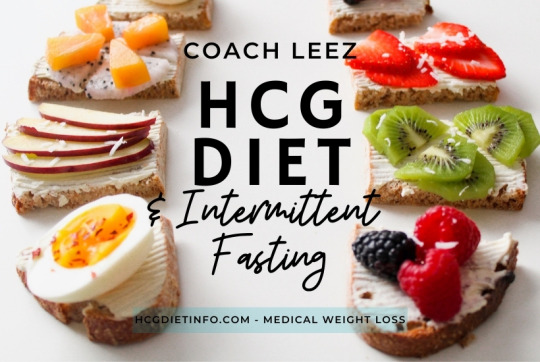
Intermittent fasting is becoming quite popular as a weight control tactic. It involves narrowing your eating "window" to 8 or fewer hours a day. Many have reported success at weight control with this tactic. Interesting enough, intermittent fasting is built into Phase 2 of the Hcg diet, if you follow the menu pattern of 2 meals a day, lunch and dinner. It may not be a significant factor, as one can split up the two meals throughout the day without slowing the weight loss, but it is worth noting that it is built into the instructions of the weight loss phase, even if coincidentally. When it comes to Phase 3 of the protocol, for stabilization and preparing for maintenance, it could greatly hinder results. HCG is a hormonal protocol, and intermittent fasting can have some negative hormonal effects. For those considering combining IF with your stabilization 21 days of P3, here is why I think it would be better to wait until P4 to give this a try. The goal of P3 is to stabilize at your ending weight on P2 of the HCG diet. In order to do that, you have to eat the right kinds of foods (good oils, all proteins, non-starchy veggies and some fruit) and you have to eat enough of them. After P2, most people's capacity is small, and many struggle to get enough food in, especially the first few days. Intermittent fasting rules make that even harder. The idea behind intermittent fasting is that having less time to eat will restrict your food intake. That is where the problem likes. You do not want to be cutting back on food intake in P3. In fact, you want to do just the opposite.
Why Intermittent Fasting Won't Work with P3:
At the end of P2, your metabolism is running at a higher more efficient level than previous to the diet. Your furnace is demanding fuel. You want to answer those demands so that the furnace keeps burning at a high rate. If that can be accomplished, you will go on being able to eat more calories than you did before without gaining weight. Your metabolism has been reset, but you can slow it down again by under-eating in P3, or ignoring hunger and waiting too long to eat. You need to get in touch with your hunger and satisfaction signals so that you eat enough and often enough to keep that revved up metabolism burning. You are learning how to fuel your body during P3. Paradoxically, the biggest issue with weight gain in P3 is failing to eat enough. This is because the fear of regain is often very strong. But that fear must be overcome. You can trust the process. People are often amazed at how much they can eat during P3 and still stay in their 2 pound window. Dr. Simeons said that in P3, eat whatever you like as long as you avoid starch and sugar. You have been given a great gift through the elimination diet aspect of P2---cravings will be gone. This gives you a rare opportunity to learn your hunger and satisfaction signals without cravings confusing the landscape. You need to learn how to eat enough, and to eat when hungry, not famished, as waiting too long almost ensures you will overeat. P3 is a golden opportunity to shift your food relationship to a healthy fuel-based focus where you recognize and address your hunger in time, and appropriately. For more information on how to recognize your hunger/satisfaction signals, please see this article: How to Know When You Are Hungry. Delaying eating until later in the day interferes with your hunger signals. Every hour after waking that you delay eating, slows down your metabolism. This is counter productive to your P3 goals. To keep your metabolism humming in P3, try to get some calories in you within an hour of awakening. It doesn't have to be a lot, but it needs to be nourishing. Something with some protein and a little fat. It could be something like coffee with collagen and MCT oil. (Froth it with a little sunflower lecithin---it gets very creamy), a small protein shake, or if you can handle solids-- some full fat cottage cheese or greek yogurt and berries, or a couple strips of bacon and some avocado. This little calorie boost early in the day wakes up your digestive system and you are off and running. There will be plenty of time to experiment with intermittent fasting once you have completed your 21 days of P3. So relax and enjoy all the freedom of variety and bounty encouraged in P3 knowing that it works, and will set you up for success in P4 (maintenance). Read the full article
#fastingtips#hcgdiet#hcgdietandfasting#hcgdietandintermittentfasting#hcgdietcoach#hcgdietcoaching#hcgdieteating#hcgdieteatingplan#hcgdietfoods#hcgdietinjections#hcgdietmaintenance#hcgdietp3#hcgdietphase2#hCGDietphase3#hcgdietplan#hcgdietprotocol#HCGDietProtocols#hcgdietshots#hcgdietstabilization#hcgdietweightloss#hcgweightlosscoach#intermittentfasting#intermittentfastingandhcgdiet#medicalweightloss#medicalweightlossprotocol
0 notes
Text
Can Alcohol Be Consumed with HCG Diet?
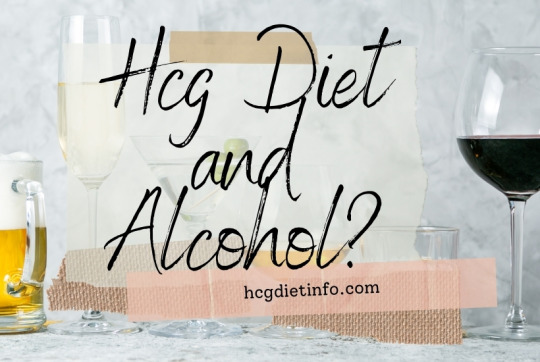

Photo by Kelsey Chance on Unsplash Per the National Institutes of Health (NIH) stats, almost two-thirds of US adults are either obese or overweight. This puts these individuals at risk of several health conditions like heart disease and diabetes. Likewise, many people struggle with weight; about 114 million spend around $60 billion, if not more, on weight loss products every year. But according to experts, the most effective approach for losing weight is by making lifestyle changes like eating healthy and monitoring portion size and regular exercises. One of the best diets for losing weight in recent years has been the HCG diet. Naturally, several questions surround this diet. This article will address whether it's okay to consume alcohol when using the HCG diet plan for weight loss. But before that, it's necessary to clarify a few things.
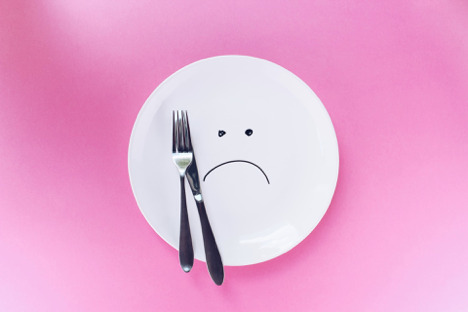
Photo by Thought Catalog on Unsplash What is The HCG Diet? The Human Chorionic Gonadotropin (HCG) is a hormone released in pregnant women to sustain the growing fetus. The US Food and Drug Administration (FDA) approved HCG for use in certain medical cases. Doctors most frequently prescribe it for the treatment of infertility. In terms of weight loss, the HCG diet comprises a considerably low-calorie diet combined with treatments of HCG, whether injected or administered orally. On average, this diet users undergo rapid weight loss of about 1 to 2 pounds each day. The explanation behind this occurrence is simple. HCG is present in both males and females even though women produce large quantities during pregnancy. This hormone stimulates the secretion of several different hormones. Therefore, it impacts the body's metabolism, digestion, muscle tissue, and several others. In essence, HCG doesn't directly induce weight loss. Instead, it alters how your body sheds weight, per Dr. Sharon Emma. In other words, the low-calorie diet initiates the weight loss and the HCG how the body completes the weight loss process, making it faster and more effective. The entire diet has three phases, namely: - Loading phase - Begin taking HCG and calorie-rich food for two days - Weight loss phase - Proceed with HCG and take only 500 calories/day for 3 -6 weeks - Maintenance phase - Halt HCG and slowly eat more calories without starch and sugar for three weeks. Now let's understand the science behind these complex bio-mechanisms before looking at how alcohol drinks may affect it and whether you can occasionally have your favorite Crown Royal Reserve while on an HCG diet. The Science Behind HCG Weight Loss When you start eating a low-calorie diet absent any medication, weight can drop very fast. However, this approach has one significant downside. Instead of shedding only fat on such a diet, the body will also lose muscle or lean tissue on a 500-calorie diet. Due to the heavy nature of muscle, you record a significant weight reduction when you step on the scale. This might sound good but is bad for the individual because it disrupts the metabolism leading to "rebound." Rebound means rapid weight gain following a weight reduction. But this is prevented with the HCG. HCG influences many glands and organs that respond to hormone levels in the body. Therefore, it can induce the production of testosterone, progesterone, and estrogen in men and women. Testosterone functions as an anabolic steroid and accounts for the results observed in HCG diets. In other words, it inhibits tissue catabolism when the body is fasting or starving. So how does alcohol affect this complex process? Let's find out.
HCG Diet and Alcohol

Photo by Mohau Mannathoko on Unsplash To be clear, the excessive drinking of alcohol does no good to the body. It overworks the liver and disrupts metabolism, which can lead to weight gain. But as far as the HCG diet goes, drinking alcohol can work against your goals, especially if you drink one too many glasses. Therefore, you want to avoid alcohol. But if you have to, drink tiny quantities. Remember, the key here is moderation. As a guideline, you can follow this recommendation below: - The volume of alcohol is 1.5 oz. for actual alcohol and 4.0 oz. of red or white wine. - Moderate means three non-beer and sugarless alcohol drinks per week Dr. Simeon included alcohol in his book Pounds and Inches. He stated, "If no carbohydrates whatsoever are eaten, fats can be indulged in somewhat more liberally and even small quantities of alcohols such as a glass of wine with meals, does not harm, but as soon fats and starch are combined things are very liable to get out of hand." Before you drink any alcohol on an HCG diet, it's vital to do so intentionally and responsibly by picking suitable alcoholic beverages. Ideally, you want to stay away from grain-based drinks that contain gluten, such as: - Beer - Grain-based vodka - Bourbon - Grain-based Gin - Whiskey Remember to limit your alcohol to no more than three days each week. Also, your maintenance phase is the most suitable for consuming alcohol. For instance, you can have a glass of cocktail or wine during Phase 3 of your HCG diet. Again, moderation is KEY! Risks Involved
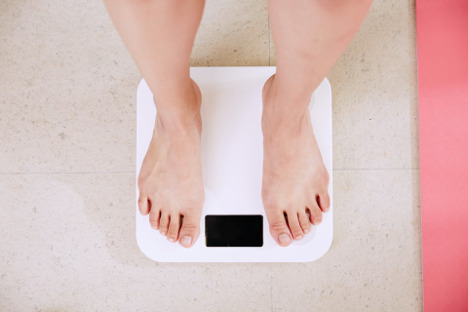
Photo by i yunmai on Unsplash There are significant risks associated with alcohol since alcohol is known to harm health in the long term. As such, you should remain mindful since it can give rise to bad eating habits and render it more difficult to exercise portion size during your HCG diet. Secondly, alcohol can increase your appetite for food. This also works against the low-calorie regimen of the HCG diet. Apart from these, it hinders the fat-burning process by reducing your metabolism, which counteracts the effects of the HCG hormone. These and many others are some of the reasons you want to avoid alcohol during your HCG diet. Conclusion Please make no mistake; alcohol intake while on the HCG diet impacts its effects. Assuming you consume any drink containing enough alcohol, you can expect your weight loss to stall for 3 to 6 days. It's even possible to gain some weight following alcohol intake. Therefore, the best cause of action that will ensure continuous weight loss is to stick to your diet and avoid heavy drinking. If you have to take alcohol, it’s better to wait until you get to the third stage of maintenance before you attempt combining alcohol with your diet. Read the full article
#alcoholanddiet#alcoholandweightloss#alcoholweightloss#hcgandalcohol#hcgandbeer#hcgandwine#hcgdietallowedfoods#hcgdietandalcohol#hcgdietcoach#hcgdietcoaching#hcgdietfamily#hcgdietfoodlist#hcgdietfoods#hcgdietprotocol#hcgdietquestions#hcgdietsupport#hcgweightloss#hcgweightlossfoods#losingweightwithalcohol
0 notes
Text
Intermittent Fasting and the Hcg Diet
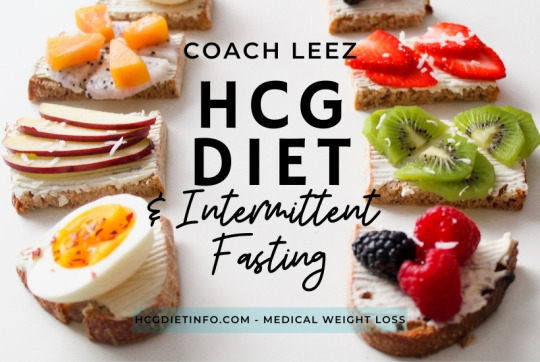
Intermittent fasting is becoming quite popular as a weight control tactic. It involves narrowing your eating "window" to 8 or fewer hours a day. Many have reported success at weight control with this tactic. Interesting enough, intermittent fasting is built into Phase 2 of the Hcg diet, if you follow the menu pattern of 2 meals a day, lunch and dinner. It may not be a significant factor, as one can split up the two meals throughout the day without slowing the weight loss, but it is worth noting that it is built into the instructions of the weight loss phase, even if coincidentally. When it comes to Phase 3 of the protocol, for stabilization and preparing for maintenance, it could greatly hinder results. HCG is a hormonal protocol, and intermittent fasting can have some negative hormonal effects. For those considering combining IF with your stabilization 21 days of P3, here is why I think it would be better to wait until P4 to give this a try. The goal of P3 is to stabilize at your ending weight on P2 of the HCG diet. In order to do that, you have to eat the right kinds of foods (good oils, all proteins, non-starchy veggies and some fruit) and you have to eat enough of them. After P2, most people's capacity is small, and many struggle to get enough food in, especially the first few days. Intermittent fasting rules make that even harder. The idea behind intermittent fasting is that having less time to eat will restrict your food intake. That is where the problem likes. You do not want to be cutting back on food intake in P3. In fact, you want to do just the opposite.
Why Intermittent Fasting Won't Work with P3:
At the end of P2, your metabolism is running at a higher more efficient level than previous to the diet. Your furnace is demanding fuel. You want to answer those demands so that the furnace keeps burning at a high rate. If that can be accomplished, you will go on being able to eat more calories than you did before without gaining weight. Your metabolism has been reset, but you can slow it down again by under-eating in P3, or ignoring hunger and waiting too long to eat. You need to get in touch with your hunger and satisfaction signals so that you eat enough and often enough to keep that revved up metabolism burning. You are learning how to fuel your body during P3. Paradoxically, the biggest issue with weight gain in P3 is failing to eat enough. This is because the fear of regain is often very strong. But that fear must be overcome. You can trust the process. People are often amazed at how much they can eat during P3 and still stay in their 2 pound window. Dr. Simeons said that in P3, eat whatever you like as long as you avoid starch and sugar. You have been given a great gift through the elimination diet aspect of P2---cravings will be gone. This gives you a rare opportunity to learn your hunger and satisfaction signals without cravings confusing the landscape. You need to learn how to eat enough, and to eat when hungry, not famished, as waiting too long almost ensures you will overeat. P3 is a golden opportunity to shift your food relationship to a healthy fuel-based focus where you recognize and address your hunger in time, and appropriately. For more information on how to recognize your hunger/satisfaction signals, please see this article: How to Know When You Are Hungry. Delaying eating until later in the day interferes with your hunger signals. Every hour after waking that you delay eating, slows down your metabolism. This is counter productive to your P3 goals. To keep your metabolism humming in P3, try to get some calories in you within an hour of awakening. It doesn't have to be a lot, but it needs to be nourishing. Something with some protein and a little fat. It could be something like coffee with collagen and MCT oil. (Froth it with a little sunflower lecithin---it gets very creamy), a small protein shake, or if you can handle solids-- some full fat cottage cheese or greek yogurt and berries, or a couple strips of bacon and some avocado. This little calorie boost early in the day wakes up your digestive system and you are off and running. There will be plenty of time to experiment with intermittent fasting once you have completed your 21 days of P3. So relax and enjoy all the freedom of variety and bounty encouraged in P3 knowing that it works, and will set you up for success in P4 (maintenance). Read the full article
#fastingtips#hcgdiet#hcgdietandfasting#hcgdietandintermittentfasting#hcgdietcoach#hcgdietcoaching#hcgdieteating#hcgdieteatingplan#hcgdietfoods#hcgdietinjections#hcgdietmaintenance#hcgdietp3#hcgdietphase2#hCGDietphase3#hcgdietplan#hcgdietprotocol#HCGDietProtocols#hcgdietshots#hcgdietstabilization#hcgdietweightloss#hcgweightlosscoach#intermittentfasting#intermittentfastingandhcgdiet#medicalweightloss#medicalweightlossprotocol
0 notes
Text
Can Alcohol Be Consumed with HCG Diet?
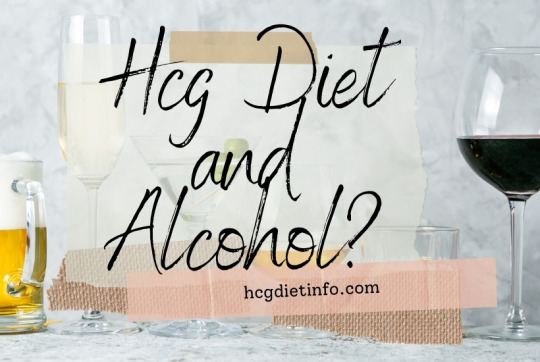

Photo by Kelsey Chance on Unsplash Per the National Institutes of Health (NIH) stats, almost two-thirds of US adults are either obese or overweight. This puts these individuals at risk of several health conditions like heart disease and diabetes. Likewise, many people struggle with weight; about 114 million spend around $60 billion, if not more, on weight loss products every year. But according to experts, the most effective approach for losing weight is by making lifestyle changes like eating healthy and monitoring portion size and regular exercises. One of the best diets for losing weight in recent years has been the HCG diet. Naturally, several questions surround this diet. This article will address whether it's okay to consume alcohol when using the HCG diet plan for weight loss. But before that, it's necessary to clarify a few things.
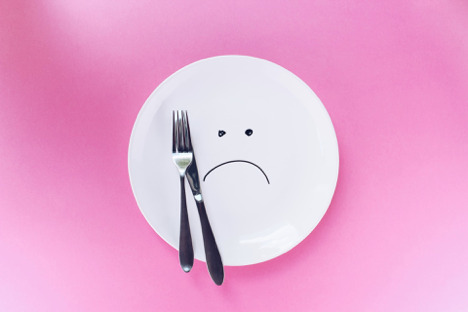
Photo by Thought Catalog on Unsplash What is The HCG Diet? The Human Chorionic Gonadotropin (HCG) is a hormone released in pregnant women to sustain the growing fetus. The US Food and Drug Administration (FDA) approved HCG for use in certain medical cases. Doctors most frequently prescribe it for the treatment of infertility. In terms of weight loss, the HCG diet comprises a considerably low-calorie diet combined with treatments of HCG, whether injected or administered orally. On average, this diet users undergo rapid weight loss of about 1 to 2 pounds each day. The explanation behind this occurrence is simple. HCG is present in both males and females even though women produce large quantities during pregnancy. This hormone stimulates the secretion of several different hormones. Therefore, it impacts the body's metabolism, digestion, muscle tissue, and several others. In essence, HCG doesn't directly induce weight loss. Instead, it alters how your body sheds weight, per Dr. Sharon Emma. In other words, the low-calorie diet initiates the weight loss and the HCG how the body completes the weight loss process, making it faster and more effective. The entire diet has three phases, namely: - Loading phase - Begin taking HCG and calorie-rich food for two days - Weight loss phase - Proceed with HCG and take only 500 calories/day for 3 -6 weeks - Maintenance phase - Halt HCG and slowly eat more calories without starch and sugar for three weeks. Now let's understand the science behind these complex bio-mechanisms before looking at how alcohol drinks may affect it and whether you can occasionally have your favorite Crown Royal Reserve while on an HCG diet. The Science Behind HCG Weight Loss When you start eating a low-calorie diet absent any medication, weight can drop very fast. However, this approach has one significant downside. Instead of shedding only fat on such a diet, the body will also lose muscle or lean tissue on a 500-calorie diet. Due to the heavy nature of muscle, you record a significant weight reduction when you step on the scale. This might sound good but is bad for the individual because it disrupts the metabolism leading to "rebound." Rebound means rapid weight gain following a weight reduction. But this is prevented with the HCG. HCG influences many glands and organs that respond to hormone levels in the body. Therefore, it can induce the production of testosterone, progesterone, and estrogen in men and women. Testosterone functions as an anabolic steroid and accounts for the results observed in HCG diets. In other words, it inhibits tissue catabolism when the body is fasting or starving. So how does alcohol affect this complex process? Let's find out.
HCG Diet and Alcohol

Photo by Mohau Mannathoko on Unsplash To be clear, the excessive drinking of alcohol does no good to the body. It overworks the liver and disrupts metabolism, which can lead to weight gain. But as far as the HCG diet goes, drinking alcohol can work against your goals, especially if you drink one too many glasses. Therefore, you want to avoid alcohol. But if you have to, drink tiny quantities. Remember, the key here is moderation. As a guideline, you can follow this recommendation below: - The volume of alcohol is 1.5 oz. for actual alcohol and 4.0 oz. of red or white wine. - Moderate means three non-beer and sugarless alcohol drinks per week Dr. Simeon included alcohol in his book Pounds and Inches. He stated, "If no carbohydrates whatsoever are eaten, fats can be indulged in somewhat more liberally and even small quantities of alcohols such as a glass of wine with meals, does not harm, but as soon fats and starch are combined things are very liable to get out of hand." Before you drink any alcohol on an HCG diet, it's vital to do so intentionally and responsibly by picking suitable alcoholic beverages. Ideally, you want to stay away from grain-based drinks that contain gluten, such as: - Beer - Grain-based vodka - Bourbon - Grain-based Gin - Whiskey Remember to limit your alcohol to no more than three days each week. Also, your maintenance phase is the most suitable for consuming alcohol. For instance, you can have a glass of cocktail or wine during Phase 3 of your HCG diet. Again, moderation is KEY! Risks Involved
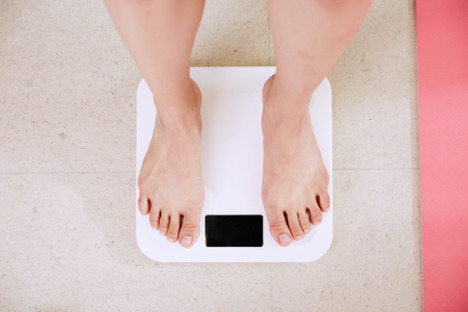
Photo by i yunmai on Unsplash There are significant risks associated with alcohol since alcohol is known to harm health in the long term. As such, you should remain mindful since it can give rise to bad eating habits and render it more difficult to exercise portion size during your HCG diet. Secondly, alcohol can increase your appetite for food. This also works against the low-calorie regimen of the HCG diet. Apart from these, it hinders the fat-burning process by reducing your metabolism, which counteracts the effects of the HCG hormone. These and many others are some of the reasons you want to avoid alcohol during your HCG diet. Conclusion Please make no mistake; alcohol intake while on the HCG diet impacts its effects. Assuming you consume any drink containing enough alcohol, you can expect your weight loss to stall for 3 to 6 days. It's even possible to gain some weight following alcohol intake. Therefore, the best cause of action that will ensure continuous weight loss is to stick to your diet and avoid heavy drinking. If you have to take alcohol, it’s better to wait until you get to the third stage of maintenance before you attempt combining alcohol with your diet. Read the full article
#alcoholanddiet#alcoholandweightloss#alcoholweightloss#hcgandalcohol#hcgandbeer#hcgandwine#hcgdietallowedfoods#hcgdietandalcohol#hcgdietcoach#hcgdietcoaching#hcgdietfamily#hcgdietfoodlist#hcgdietfoods#hcgdietprotocol#hcgdietquestions#hcgdietsupport#hcgweightloss#hcgweightlossfoods#losingweightwithalcohol
0 notes
Photo
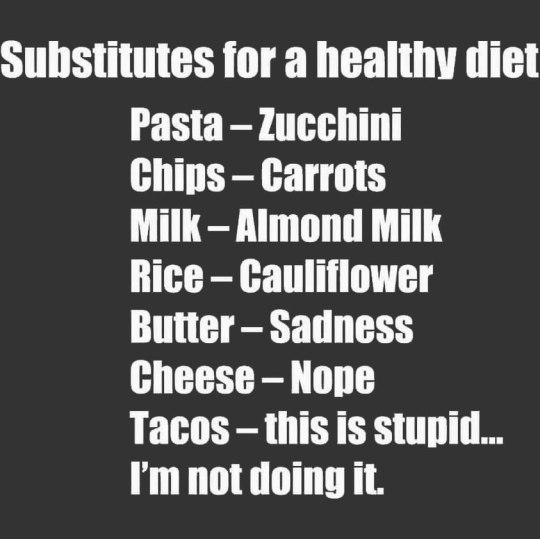
I think we’ve all felt this one 😂 Medical Weight Loss: https://hcgdietinfo.com #medicalweightloss #weightlossfoods #eatthisnotthat #healthyfoodchoices #hcgdietfoods #foodsforweightloss #foodsubstitutes #weightlosslol #losetheweight #diethumor #funnystuff #thursdaythoughts #diethumor #hcgdietphase3 #hcgdietfoods (at Las Vegas, Nevada) https://www.instagram.com/p/CREv3hvjEEq/?utm_medium=tumblr
#medicalweightloss#weightlossfoods#eatthisnotthat#healthyfoodchoices#hcgdietfoods#foodsforweightloss#foodsubstitutes#weightlosslol#losetheweight#diethumor#funnystuff#thursdaythoughts#hcgdietphase3
0 notes